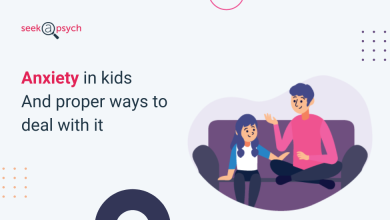What Happens During Detox, and Is It Necessary for Recovery?

When someone decides to overcome addiction, one of the first steps in their recovery journey is detoxification (detox). Detox is the process of removing harmful substances from the body, allowing individuals to safely transition into a drug-free state. However, detox can be challenging, as it often comes with withdrawal symptoms that require professional medical supervision.
Many people wonder, “Is detox really necessary for recovery?” The short answer is: Yes, for most individuals struggling with substance dependence, detox is a crucial first step. Without it, the body remains physically dependent on substances, making it harder to achieve long-term sobriety.
At New Method Wellness, we provide medically supervised detox programs that help clients safely manage withdrawal symptoms and prepare for further addiction treatment.
What Happens During Detox?
Detox is a structured process that helps individuals withdraw from drugs or alcohol safely and comfortably. The experience varies depending on the substance used, the severity of the addiction, and the person’s overall health. However, most detox programs follow these key stages:
1. Evaluation & Assessment
Upon entering a detox program, medical professionals conduct a comprehensive assessment, which includes:
- Medical history review
- Substance use evaluation (frequency, duration, and type of drugs used)
- Physical and mental health assessment
- Lab testing for toxins
This step helps clinicians create a personalized detox plan tailored to the individual’s needs.
2. Stabilization (Managing Withdrawal Symptoms)
The stabilization phase involves medically managing withdrawal symptoms as the body begins to eliminate substances. Symptoms can range from mild discomfort to severe complications, depending on the drug and the level of dependence.
Common withdrawal symptoms include:
- Alcohol withdrawal – Anxiety, tremors, sweating, nausea, hallucinations, and seizures
- Opioid withdrawal – Muscle pain, insomnia, nausea, vomiting, diarrhea, and intense cravings
- Benzodiazepine withdrawal – Panic attacks, seizures, dizziness, and severe anxiety
- Stimulant withdrawal – Fatigue, depression, mood swings, and cravings
Medical detox programs use medications, fluids, and nutritional support to ease withdrawal symptoms and prevent complications. Some individuals require Medication-Assisted Treatment (MAT), which involves FDA-approved medications like buprenorphine, methadone, or naltrexone to reduce cravings and withdrawal symptoms.
3. Transition to Addiction Treatment
Detox alone does not treat addiction. It simply clears the body of substances, preparing individuals for therapy and long-term recovery programs. After completing detox, patients transition to residential or outpatient treatment where they receive:
- Individual & group therapy
- Cognitive Behavioral Therapy (CBT) and Dialectical Behavior Therapy (DBT)
- Dual diagnosis treatment for mental health conditions
- Holistic therapies like yoga, meditation, and nutrition counseling
At New Method Wellness, we ensure that detox is followed by a structured treatment plan to help individuals develop coping skills, address underlying issues, and maintain long-term sobriety.
Is Detox Necessary for Recovery?
The necessity of detox depends on the substance used, the severity of dependence, and the individual’s health. However, for those with moderate to severe addiction, detox is strongly recommended for the following reasons:
1. Prevents Dangerous Withdrawal Symptoms
Some substances, such as alcohol and benzodiazepines, can cause life-threatening withdrawal symptoms like seizures or delirium tremens (DTs). Medical detox provides life-saving interventions to prevent serious complications.
2. Reduces the Risk of Relapse
Withdrawal symptoms can be painful and overwhelming, leading many individuals to relapse early in the recovery process. A supervised detox program provides support, medications, and coping strategies to help individuals manage cravings and discomfort.
3. Improves Mental & Physical Stability
Substance abuse depletes essential nutrients and damages mental health. Detox helps restore the body’s natural balance, allowing individuals to regain mental clarity, emotional stability, and physical strength before beginning addiction treatment.
4. Lays the Foundation for Long-Term Recovery
While detox is not a cure for addiction, it is the first step toward long-term healing. After detox, individuals enter rehab programs where they learn behavioral coping strategies, relapse prevention techniques, and emotional regulation skills.
Types of Detox Programs
There are several detox options, and choosing the right one depends on the individual’s needs.
1. Medically Supervised Detox
- Conducted in a hospital or residential treatment facility
- Provides 24/7 medical monitoring
- Uses medications to ease withdrawal symptoms
- Recommended for severe addiction cases
2. Outpatient Detox
- Allows individuals to detox at home under medical supervision
- Suitable for mild withdrawal symptoms
- Includes regular check-ins with doctors
- Not recommended for those at risk of severe withdrawal complications
3. Holistic Detox
- Uses natural therapies like acupuncture, massage, and nutrition
- Focuses on mind-body healing
- Works best when combined with medical supervision
Finding the Right Detox Program
Choosing the right detox center is crucial for a safe and effective withdrawal process. A quality detox program should offer:
✅ Medical supervision by trained professionals
✅ Personalized treatment plans
✅ Medication-assisted treatment options
✅ Emotional and psychological support
✅ Transition to further addiction treatment
For individuals looking for a professional and compassionate detox program, New Method Wellness offers comprehensive medical detox services along with residential and outpatient treatment options.
Final Thoughts
Detox is a critical first step in the recovery process for many individuals struggling with addiction. A medically supervised detox program ensures safety, minimizes withdrawal symptoms, and prepares individuals for long-term treatment.
While detox alone is not a cure for addiction, it lays the foundation for lasting sobriety. If you or a loved one is considering detox and addiction treatment, reach out to a trusted rehab center today.
For more information on safe and effective detox programs, visit New Method Wellness and take the first step toward a healthier, substance-free life.



